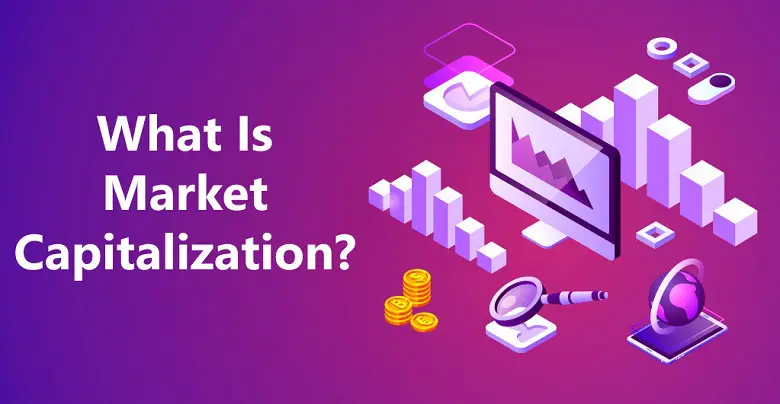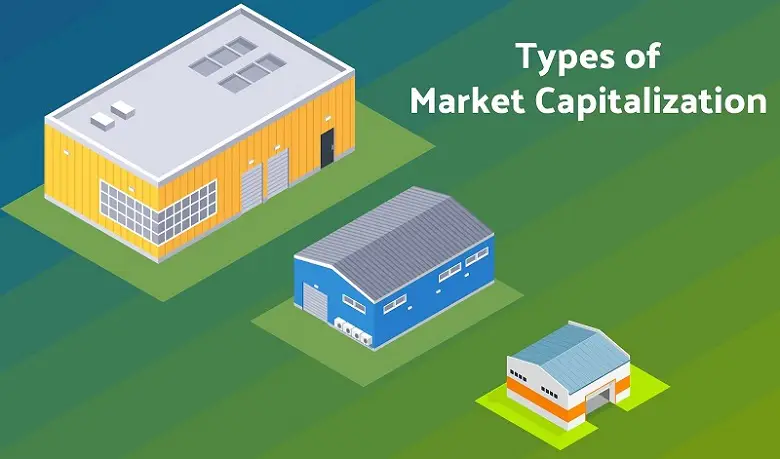What Is Market Capitalization? – Find Its Importance

Introduction
When you are planning to evaluate a company, which is publicly traded and you decide you want to purchase some of its shares. Then your focus should not only be on the price of a single share but also you should analyze its Market Capitalization or call it “Market Cap”. This helps you to have a clear picture of how the market values the stocks of the company.
What is a Market Cap?
- Market Capitalization can be described as the organization’s total valuation, which is based on its present share price and the total number of its outstanding stocks. We can calculate a company’s Market Cap by multiplying the present share price of the company’s share multiplied with the total outstanding shares of the company.
- Market Capitalization is the most important feature that helps the investor to find out the returns and the risk of the share, and also it helps the investors to select a million shares that are available in the market that meet their criteria and the risk.
- Market Capitalization is the amount paid by the investors to buy the company shares, which need not be its true value. Besides, it determines the business size of the companies. It also determines which category of a publicly traded company it falls under, such as small-Cap, mid-Cap, or large-Cap companies.
Advantages and Disadvantages of Market Capitalization
Advantages
Market Cap offers several advantages for the investors. Some of them are –
- Market Cap is considered as the most widely used and easiest method to value a company.
- They can perfectly point out safer and relatively more stable companies such as large or mega cap, that mainly generate returns even though in times of market fluctuations.
- By studying the Market Cap, the investor can understand the size of the company, the number of shares available, shares outstanding, and compare it with a similar company.
- It is also used for analyzing the shares which constitute an index. Suffice to say, a stock that has a higher price always gets higher weighing in an index.
- This can also be used to create a well-adjusted portfolio for the investors.
Disadvantages
- It does not take into account the debt owed by the company; if a potential investor tries to value the company by using a Market Cap, which might not see the cost involved in servicing the burden of debts.
- One of the other disadvantages is, it does not take into account returns like stock splits, dividends, shares outstanding, and others.
Types of Market Caps

As an investor, when you are evaluating the company’s Market capacity, it helps you to compare other companies of similar sizes. There are several types of Caps, such as Small-Cap, Mid-Cap, Large-Cap, Micro-Cap, Nano-Cap, and Mega-Cap. Let us discuss each one of them.
- Micro Cap
Stocks that are considered as penny stocks and very young companies. Micro-Cap companies can have a potential for growth and they might decline anytime. If the situations are not favorable, they cannot be considered as a safe investment.
- Nano Cap
These can be described as stocks, which have a Market Cap of not more than $50 million shares; they are considered as penny stocks and are invested by the traders who are ready to take big risks to huge pocket profits. Usually, they trade in pink sheets, or over the counter bulletin board.
- Small-Cap
Companies that are described as Small-Cap stocks come under the category of under 1 billion shares. They have a greater potential for higher growth. Eventually, small companies are either a startup or young organizations, which serve niche sectors or developing industries. Moreover, small Caps are known as the most aggressive and highly risky when compared to others.
- Mid Cap
These stocks are $1 billion to $10billion stocks that fall in between the small-Cap and large-Cap for investors aiming for safety and growth boundaries. Mid-Cap stock holding companies are very well established industries, which might be expected or experiencing rapid growth. These mid-sized companies might be in the process of increasing their share in the market by improving overall competitiveness. Further, mid-cap offers more growth potential when compared to large Caps, and they are less risky than small Caps.
- Large Cap
The large-cap stocks are above $10 billion and more, which have less potential for an increase in price. They might be considered safer Investments because they are already successful and no longer track the record for success. Large-Cap stocks that are valued above $10 billion have a very good reputation for producing high-quality goods, and also they have a history of steady growth and consistent dividend payments. Their brand names are publicly traded, and they are very popular to a nationwide audience.
- Mega Cap
The stocks that have a Market share of more than $300 billion. They have higher growth potential, and one of the leading examples is Microsoft corporation, which is a Mega stock.

Differences Between Market Cap and Free-float Market Cap
If the company shares are freely traded on the market and considered for calculating the Market Capitalization, it is referred to as free-float Market Caps. When comparing Market Cap with free-float Cap, we can say that Market Cap is the total value of all shares of the company available in stock, while free-float is considered as the number of outstanding shares allowed for trading by the general public. Free-float Cap does not include locked-in shares, like those that are held by the governments and company executives.
What Are the Factors That Have an Impact on Market Caps?
There are a few factors that have a very good impact on the Market Cap of a company. By analyzing these factors, investors can decide on a company, whether they can offer good returns or not. Some of them are discussed below –
- The two most important factors that impact the Market Capitalization of a company is, demand for its products or services of a company; and its Capability to cater to that demand.
- Fluctuations can have a huge impact on the Market Cap. Besides, these can be an industry-specific or economic downturn, and it can be both.
- By exercising a warrant on the company stocks, it can reduce its market value.
- Ingenuity and performance of the rival brands or companies can play a bigger role in Market Cap. Further, the reputation and the reliability of the company have a good effect on the Market Cap.
Misinterpretations About Market Caps
- Even though Market Cap is used to describing a company, it does not measure the equity value. Through a detailed analysis of the company’s fundamentals can achieve the result. Market Cap is not adequate to determine the company’s value because the market price does not reflect how much worth the business is.
- Besides, several companies’ shares are always overvalued or undervalued by the investors, which means the market price shows how much the investors are ready to pay for the company’s shares.
- Moreover, the Market Cap matches the buying cost of all the company shares. It does not take into account the amount that caused the company to acquire a merger. Moreover, a better method should be used to calculate the price of acquiring the business or its enterprise value.
Why is Market Capitalization Considered as an Important Concept?
Market Cap is considered as an important concept because it permits the investors to analyze and understand the size of the company with another company. Also, it measures what the company is worth in its value on the open market as well. It also shows the market awareness of its plans; and what investors are ready to pay for the stocks.
FAQ’s
- What Does Market Cap Tell You?
Market Capitalization can be described as the total market value of the organization’s outstanding shares of stock. It is usually calculated by multiplying the total number of companies shares into the current market price of a single share.
- How Does Market Cap Affect Stock Price?
Generally, the investor uses Market Cap as an important method to determine company size, even though the stock price forms an integral part of Market Cap calculation.
- Is the Market Cap the Value of a Company?
Market Cap can also be referred to as the companies’ total market value of all outstanding shares. It does not show the details about what the company is worth or, in simple words, its value. Stocks with the Market Cap of more than $10 billion are safer bets than others.
Wrap up
If you want to build a good portfolio of the proper mix of Small-Cap, any Size of stocks, or the number of shares, you should analyze and evaluate your risk tolerance, time horizon, and financial goals. If you are looking to purchase future stocks of a company, it is very crucial to look at the Market Capital to have an idea about how a stock can grow further. The investor should have a diversified portfolio that has a variety of Market Caps which helps in reducing investment risk, and also that supports long term financial goals of the investor.



